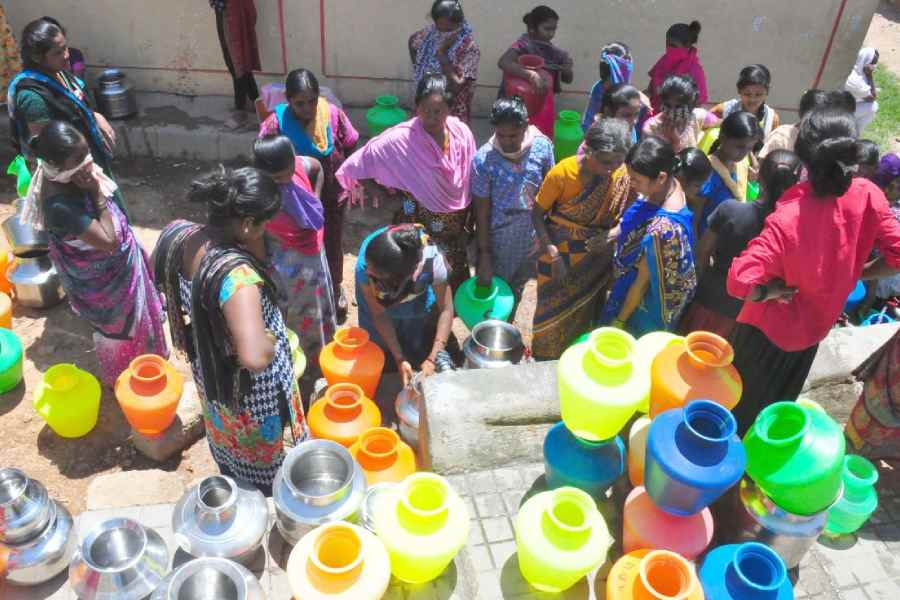The country’s IT capital is reeling under one of the worst water crises in recent memory, with residents’ welfare associations devising ways to preserve stocks by training maids and gardeners and asking residents to be ready to use single-use products.
Karnataka deputy chief minister D.K. Shivakumar’s revelation that even the tube well at his official residence in Bangalore had dried up along with thousands of others in the city underlined the seriousness of the issue.
From flooding in 2022 to drought well ahead of the onset of summer, the tech city has witnessed extreme weather conditions over the past few years. The cloudbursts two years ago had left many residential areas and tech parks under waist-deep water that destroyed possessions in many ground-floor homes and offices apart from inundating parked motor vehicles.
One of the worst affected gated communities during the floods, an upscale property in Yemalur near the HAL Airport, has now issued a circular to its residents with guidelines on preserving water.
The gated community called Divyashree has prohibited washing cars, turned off water fountains, decided not to top up the swimming pool and turned down valves on lines to kitchens and washrooms to 50-75 per cent of the capacity.
On an experimental basis, tap water will be turned off from noon to 5pm, barring toilet flush lines.
A circular from Prestige Falcon City, a cluster of high-rises in the south of Bangalore with around 2,500 dwelling units, has asked its residents to be prepared for the worst and be ready to use single-use items such as cutlery and wet wipes.
Arindam, a senior banking professional from Calcutta who lives in the bustling suburb of Sarjapur in southeast Bangalore, said his apartment complex had been depending on groundwater and private tankers since the Cauvery water supply was just a trickle.
“We do feel the shortage of water since the Cauvery water hardly meets the requirements of the 250 flats in our complex. So we get between 15 and 18 private tankers (with a capacity of 12,000 litres each) every day apart from groundwater,” he told this newspaper.
Shivakumar, who handles the portfolios of irrigation and Bangalore city development, has directed the civic body to ensure all private water tankers are at its disposal to supply water to parched neighbourhoods, many of them on the outskirts. He said even milk tankers would be deployed to supply water. This is to ensure the availability of tankers and keep a tab on prices. Private suppliers now charge between Rs 800 and Rs 2,000 against Rs 400-600 for 12,000 litres of water.
One of the major reasons for the crisis in Bangalore, according to Shivakumar, is the fact that 6,997 of the 14,781 bore wells in the city limits have dried up. One estimate shows that the city receives 1,450 million litres per day of water from the reservoirs fed by the Cauvery. The city also consumes about 750 MLD of groundwater pumped from the bore wells.
The city has historically been dependent on Cauvery water pumped up from about 100km away to a height of nearly 550 metres since Bangalore is on a plateau.
The state faced a 25 per cent deficit in the southwest monsoon from June to September and a 38 per cent deficit in northeast monsoon from October to December. This led to the fast depletion of the Cauvery basin dams.











